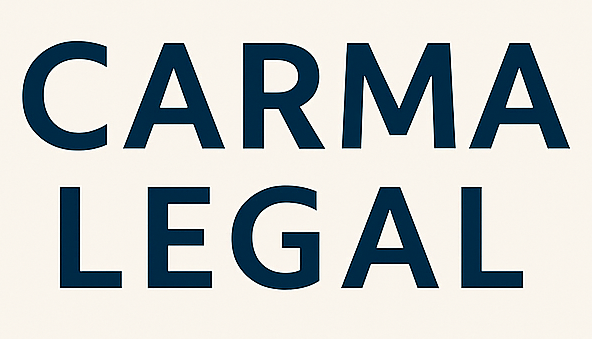Finding the right amputation lawyer can make a significant difference in securing the maximum compensation you deserve after a life-altering injury. When you or a loved one faces limb loss, the road ahead often includes extensive medical treatment, rehabilitation, prosthetic care, and lost income. With mounting medical bills and profound emotional strain, you need an attorney who combines legal expertise with a thorough understanding of catastrophic injury cases.
An amputation lawyer specializes in personal injury law and advocates for clients dealing with severe physical trauma. By partnering with counsel who has handled similar claims, you gain access to tailored legal strategies designed to address your unique circumstances. This guide will help you navigate the process of selecting the right legal advocate—one who can negotiate with insurance companies, establish liability, and fight for the compensation you need for long-term care, pain and suffering, and other losses.
Understanding amputation claims
When you pursue a claim for an amputation injury, it helps to understand the scope and gravity of these cases. Amputation injuries can arise from a variety of incidents, and the legal process often involves multiple areas of expertise, from medical malpractice to product liability.
Common causes of amputation
Common causes of traumatic amputation include:
- Motor vehicle collisions
- Construction site and machinery accidents
- Defective products and workplace negligence
- Severe infections or medical malpractice
- Vascular diseases and diabetes complications
(For a deeper look at these causes, see Spence Lawyers)(https://www.spencelawyers.com/firm-news/amputation-injury-lawyer-everything-to-know)
Impact on daily life
An amputation can affect virtually every area of your life:
- Physical health and mobility, requiring prosthetics or adaptive equipment
- Emotional and psychological well-being, including anxiety and depression
- Financial stability, due to lost wages, home modifications, and ongoing medical expenses
- Social and family dynamics, with potential caregiving responsibilities for loved ones
According to one report, more than 5.6 million people are living with limb loss in the United States, and the total annual cost of amputations exceeded $8.3 billion in a recent year (The Flood Law Firm). In an average year, roughly 185,000 people undergo an amputation in the U.S. (Bradley Law Personal Injury Lawyers).
Hiring a lawyer
Securing experienced legal representation is crucial for navigating the complexities of your claim. An amputation lawyer brings specialized knowledge, resources, and advocacy to your case.
Legal expertise and advocacy
Your attorney should have in-depth familiarity with state and federal personal injury statutes. They will:
- Investigate the circumstances of your injury
- Identify liable parties, from employers to product manufacturers
- Assemble expert witnesses and medical professionals
Navigating complex laws
Personal injury and medical malpractice laws vary by state. An attorney with a track record in amputation claims will know:
- Statutes of limitations for filing lawsuits
- Caps on damages in medical negligence cases
- Requirements for proving negligence and liability
Contingency fee arrangements
Most amputation lawyers work on a contingency basis, meaning you pay nothing unless your case succeeds. This arrangement:
- Reduces upfront financial risk
- Aligns your lawyer’s incentives with your outcome
- Covers investigation, expert fees, and trial costs
If your case involves other serious injuries, you may also consult a spinal cord injury lawyer or a head injury lawyer to ensure all aspects of your claim receive proper attention.
Evaluating lawyer qualities
Choosing the right attorney involves more than credentials. You need a professional who demonstrates empathy, clear communication, and a proven record of success.
Industry experience
Look for attorneys who have handled multiple amputation cases and understand the medical and technical details of limb loss. Ask about:
- Years of practice in personal injury law
- Number of amputation cases tried or settled
- Connections with rehabilitation specialists and prosthetists
Track record
Review past outcomes to gauge an attorney’s effectiveness. Key indicators include:
- Total compensation secured for clients
- Settlement amounts versus verdict awards
- Success in negotiating fair insurance payouts
Client testimonials
Client feedback offers insight into an attorney’s approach and support. Positive signs include:
- Clear, timely communication
- Compassionate handling of personal concerns
- Willingness to answer questions and explain legal options
Accessibility and support
A strong attorney-client relationship depends on reliable communication. You want a firm that:
- Provides a dedicated case manager or paralegal
- Offers 24/7 emergency contact for urgent issues
- Keeps you informed at every stage
Many clients also benefit from firms that handle a range of catastrophic injury claims, such as a serious injury lawyer or a life changing injury attorney, ensuring comprehensive support.
Assessing compensation types
Understanding the types of damages you can pursue helps you and your lawyer build a comprehensive claim.
| Damage type | Description |
|---|---|
| Economic damages | Quantifiable financial losses, including medical bills, rehabilitation, prosthetic costs, and lost wages |
| Non-economic damages | Intangible losses like pain and suffering, emotional distress, and loss of enjoyment of life |
| Punitive damages | Additional awards meant to punish particularly negligent or malicious conduct |
Economic damages
Your attorney will calculate past and future medical expenses, including:
- Hospital stays and surgeries
- Physical therapy and rehabilitation
- Prosthetic devices and maintenance
Non-economic damages
These compensate for the personal toll of amputation, such as:
- Chronic pain and phantom limb syndrome
- Psychological impact, including anxiety and depression
- Loss of independence and lifestyle changes
Punitive damages
In cases of gross negligence—such as a wrongful surgical amputation—courts may award punitive damages to deter future misconduct. Your lawyer will assess whether punitive awards are appropriate based on the facts and jurisdiction.
Working with your lawyer
Once you have engaged representation, collaboration and transparency are key to a strong case.
Gathering key evidence
Your attorney will coordinate the collection of:
- Medical records, including surgical and rehabilitation reports
- Accident reports, witness statements, and expert opinions
- Documentation of expenses, such as receipts, pay stubs, and billing statements
Communication and updates
A structured communication plan ensures you remain informed:
- Regular status reports on negotiations or trial preparation
- Scheduled calls or in-person meetings for major developments
- Secure client portals for document review
Settlement vs trial
Most amputation claims resolve through settlement, but your lawyer will prepare for trial if negotiations stall. They will:
- Develop a comprehensive trial strategy
- Select expert witnesses to testify on medical and vocational issues
- Advocate for your full losses before a judge or jury
If your case involves a fatal outcome, your lawyer may collaborate with a wrongful death attorney for families to address survivor benefits and loss of consortium claims.
Choosing the right firm
Not all law firms offer the same resources or focus. When comparing firms, consider the following:
Free initial consultation
Most reputable firms provide a no-cost review of your case. Use this meeting to:
- Assess the attorney’s understanding of amputation law
- Gauge their compassion and responsiveness
- Discuss fee structures and case timelines
Resources and services
A full-service firm often offers:
- In-house medical and vocational experts
- Access to support groups and counseling referrals
- Coordination with prosthetic and rehabilitation providers
Look for firms that handle catastrophic injuries, similar to a catastrophic injury lawyer, ensuring they have multidisciplinary support.
Location and availability
Choose a firm with convenient access to your region and court systems. Proximity matters for:
- In-person meetings with attorneys and experts
- Depositions and court appearances
- Site visits to workplaces or accident locations
Preparing for consultation
The more prepared you are, the more productive your initial meeting will be.
Gather necessary documents
Bring copies of:
- Medical and surgical records
- Accident reports or incident logs
- Insurance correspondence and claim summaries
- Pay stubs and proof of lost income
Questions to ask
Prepare a list of questions to evaluate the lawyer’s fit:
- What is your experience with amputation cases?
- Have you handled cases with similar causes and injuries?
- How do you communicate with clients throughout the case?
- What is your fee structure and estimated costs?
- Can you provide client references or testimonials?
Understanding the process
Ask your attorney to outline key milestones:
- Investigation and evidence gathering
- Demand package preparation and settlement negotiations
- Trial preparation and courtroom steps
By clarifying expectations from the outset, you build trust and ensure your legal team moves forward with confidence and transparency.
Conclusion
Choosing the right amputation lawyer is a critical step toward securing the compensation you need for lifelong care, lost wages, and emotional recovery. With extensive experience, proven results, and a commitment to clear communication, your attorney becomes an essential advocate in your journey.
As you evaluate firms and consult with prospective lawyers, focus on their track record with amputation and catastrophic injury claims, their ability to explain complex legal concepts, and their dedication to your well-being. Armed with this knowledge and preparation, you can move forward knowing you have a partner ready to fight for your rights and maximize the recovery you need to rebuild your life.








